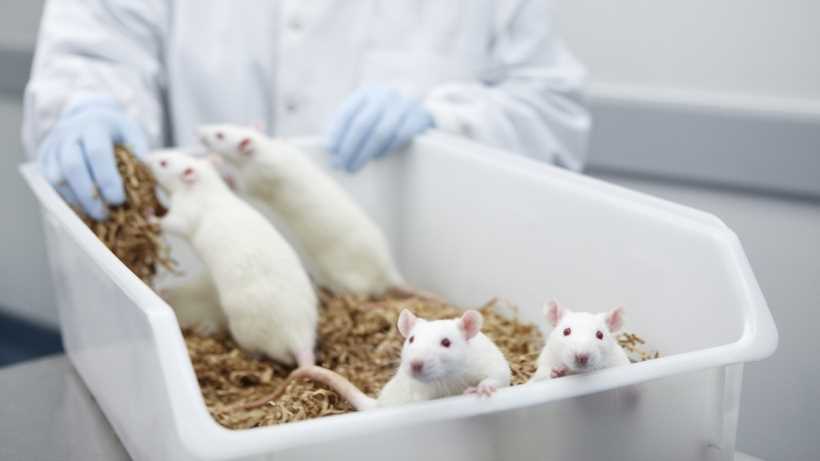




花中基因伦理思考:小花花基因优良的伦理考量
In the realm of manga, the captivating world of 花中基因伦理思考:小花花基因优良的伦理考量 has sparked a profound dialogue on the ethical implications of genetic engineering within the context of human reproduction.
As technology advances and our understanding of genetics deepens, the question of whether we should manipulate the genes of our children raises complex moral and ethical dilemmas. In the case of 花中基因伦理思考:小花花基因优良的伦理考量, these issues are explored with nuance and sensitivity.
The Promise of Genetic Enhancement
One of the primary arguments in favor of 花中基因伦理思考:小花花基因优良的伦理考量 is the potential to improve the lives of future generations. By selecting for desirable traits such as intelligence, athleticism, or disease resistance, parents could give their children a significant advantage in life.
Such enhancements could alleviate suffering, reduce healthcare costs, and foster a more equitable society. It raises the tantalizing prospect of eliminating genetic disorders and creating a healthier, more resilient population.
Ethical Implications of Designer Babies
However, the possibility of genetic enhancement also raises profound ethical concerns. Critics argue that it could lead to a form of eugenics, where parents are pressured to create children that meet unrealistic or discriminatory standards.
Moreover, it could exacerbate social inequalities by creating a class of "genetically superior" individuals. It also raises questions about the autonomy of future generations, who may not have consented to the modifications made to their genes.
Balancing Parental Autonomy and Societal Responsibility
At the heart of the 花中基因伦理思考:小花花基因优良的伦理考量 debate lies the tension between parental autonomy and societal responsibility. Parents have a strong desire to provide the best possible lives for their children, but society has a stake in ensuring that genetic modifications are used ethically and responsibly.
Finding the right balance requires careful consideration of the potential benefits and risks, as well as ongoing monitoring and regulation to prevent abuses. It also demands a broad societal dialogue involving ethicists, scientists, policymakers, and the general public.
The Role of Government Regulation
Government regulation plays a crucial role in shaping the ethical landscape of 花中基因伦理思考:小花花基因优良的伦理考量. By establishing clear guidelines and standards, governments can ensure that genetic technologies are used for legitimate purposes and that appropriate safeguards are in place.
However, regulation must also be flexible enough to adapt to new scientific advances and societal values. It should strike a balance between protecting the public interest and fostering innovation in the field of genetic engineering.
The Long-Term Impact on Human Evolution
Another important consideration is the long-term impact of 花中基因伦理思考:小花花基因优良的伦理考量 on human evolution. By altering our genetic makeup, we could potentially change the trajectory of our species. Could this lead to a more advanced or more homogeneous human population?
Such questions are difficult to answer, as they involve complex scientific and ethical considerations. It is essential to approach 花中基因伦理思考:小花花基因优良的伦理考量 cautiously, with an awareness of the potential long-term consequences.
Unintended Consequences
Although scientists strive to predict the outcomes of genetic modifications, there is always the possibility of unintended consequences. Altering one gene could have ripple effects throughout the human genome, leading to unforeseen health or behavioral issues.
It is crucial to conduct thorough research and monitoring to identify and mitigate potential risks before widespread use of genetic enhancement technologies. Long-term studies are essential to fully understand the implications of our genetic interventions.
The Need for a Values-Based Approach
Ultimately, the ethical considerations surrounding 花中基因伦理思考:小花花基因优良的伦理考量 cannot be resolved solely through scientific or legal means. They require a values-based approach that reflects our collective understanding of what it means to be human.
As we navigate the complex landscape of genetic engineering, we must prioritize the principles of justice, equity, and respect for human dignity. These values should guide our decisions regarding the use of genetic technologies and ensure that they are used for the benefit of all humanity.
Encouraging Informed Decision-Making
Promoting informed decision-making is essential in ensuring the ethical use of 花中基因伦理思考:小花花基因优良的伦理考量. Prospective parents should have access to accurate and unbiased information about the potential benefits, risks, and ethical implications of genetic enhancements.
Genetic counselors and healthcare professionals play a crucial role in providing guidance and support to individuals and families considering genetic interventions. By fostering a culture of informed consent, we can empower people to make choices that are aligned with their values and aspirations.
Conclusion
The ethical considerations surrounding 花中基因伦理思考:小花花基因优良的伦理考量 are profoundly complex and require ongoing dialogue and careful reflection. As we continue to explore the possibilities of genetic engineering, we must strive to balance scientific advancement with a deep respect for human dignity and the principles of justice and equity.
By approaching 花中基因伦理思考:小花花基因优良的伦理考量 with a thoughtful and values-based approach, we can harness its potential to improve human well-being while safeguarding the integrity of our species and the ethical foundations of our society.
Remember, the choices we make today will shape the genetic legacy of generations to come. Let us proceed with wisdom, humility, and a unwavering commitment to the highest ethical standards.